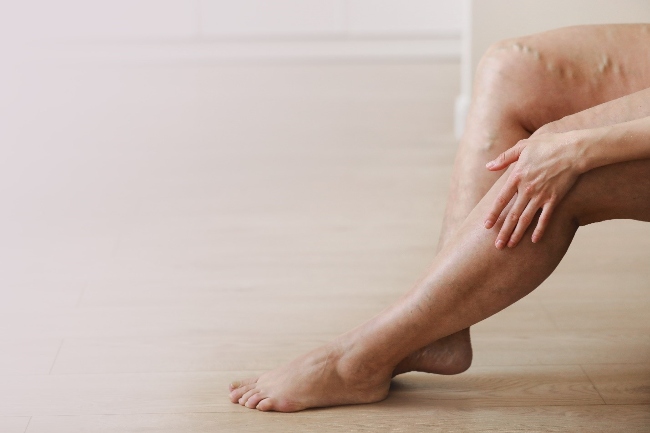How Do I Know if My Bulging Veins Are a Problem?

Do you have swollen veins? It’s not always a problem. Sometimes, however, bulging veins point to a serious vein disorder that requires the help of a specialist. How do you know whether your veins need special care? The answer depends on a lot of things, including the severity of your symptoms.
First, try to establish the reason behind your swollen veins. Together with arteries, veins do the important work of carrying blood to the organs, tissues, and cells of the body. While arteries move the blood from the heart to the rest of the body, veins are tasked with returning the blood back to the heart so it can be refreshed with new oxygen. In the legs, veins have to fight gravity to do this, so leg veins are designed with one-way valves that push the blood upward. If these valves weaken, blood can pool in the leg veins, stretching the vein walls until the vein becomes an unsightly varicose vein. This condition is known as venous insufficiency, and it can cause swelling, pain, and changes in the skin.
Another vein issue that affects many people is spider veins. These are thin blue and purple webs of veins on the face, legs, or feet. Spider veins are the result of a circulatory problem and, while they don’t bulge the way varicose veins do, they can still be problematic, causing itchiness, swelling, and irritation.
Sometimes, varicose veins do not constitute a major issue. Often, they’re temporary, perhaps appearing after a workout. Pregnant women get varicose veins because of the extra blood their bodies are supporting, along with the rush of hormones that weaken the veins’ walls. Typically, varicose veins disappear after the baby is born.
Varicose veins become a problem when they’re not caused by something temporary, and they have serious symptoms. If the symptoms of your varicose veins are making your daily life difficult, with pain, swelling, cramps, heaviness, itching, nighttime restlessness, and leg ulcers, it may be time to seek treatment. Have your veins examined by a specialist, because the longer they’re left untreated, the more serious complications they can develop. One serious consequence of leaving bulging veins untreated is that they can develop blood clots. When a blood clot occurs deep within the vein, it is known as deep vein thrombosis (DVT), which is potentially life-threatening.
Fortunately, bulging veins can be treated. Your doctor may recommend self-care steps like losing weight or quitting smoking, or it may be determined that you need medical treatment. A vein specialist will be able to offer solutions that are minimally invasive and require very little downtime. If you’re seeking the very best care for your vein and blood flow issues, trust the board-certified physicians at the Arizona Vein & Laser Institute. Using the most advanced technology, the vascular and cardiovascular surgeons at the Arizona Vein & Laser Institute provide care for all types of venous diseases. With over 40 years of experience, our team of experienced physicians can devise the right treatment plan to address your venous disease problems. For more information contact us through our website.
